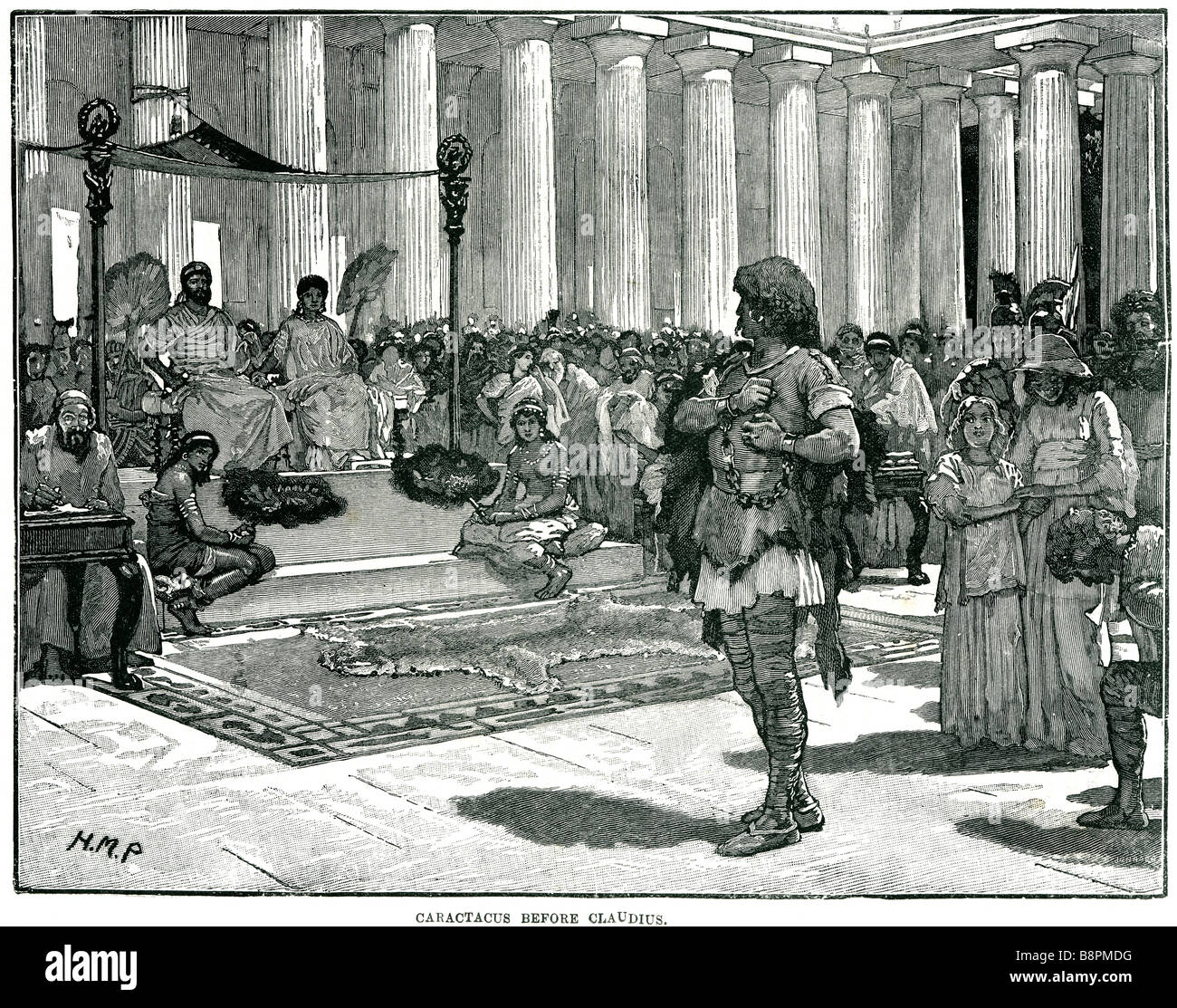caractus before claudius Tiberius Claudius Caesar Augustus Germanicus or Claudius I ( 1 August 10 BC – 13 October 54 AD ) (Tiber

Image details
Contributor:
19th era / Alamy Stock PhotoImage ID:
B8PMDGFile size:
52.7 MB (7.9 MB Compressed download)Releases:
Model - no | Property - noDo I need a release?Dimensions:
4839 x 3809 px | 41 x 32.2 cm | 16.1 x 12.7 inches | 300dpiMore information:
Tiberius Claudius Caesar Augustus Germanicus or Claudius I ( 1 August 10 BC – 13 October 54 AD ) (Tiberius Claudius Drusus from birth to AD 4, then Tiberius Claudius Nero Germanicus from then until his accession) was the fourth Roman Emperor, a member of the Julio-Claudian dynasty, ruling from 24 January AD 41 to his death in AD 54. Born in Lugdunum in Gaul (modern-day Lyon, France), to Drusus and Antonia Minor, he was the first Roman Emperor to be born outside Italia. No one would have expected Claudius to become emperor. He was reportedly afflicted with some type of disability, and his family had virtually excluded him from public office until his consulship with his nephew Caligula in AD 37. This infirmity may have saved him from the fate of many other Roman nobles during the purges of Tiberius' and Caligula's reigns; potential enemies did not see him as a serious threat to them. His very survival led to his being declared emperor (reportedly because the Praetorian Guard insisted on this) after Caligula's assassination, at which point he was the last adult male of his family. Despite his lack of political experience, Claudius proved to be an able administrator and a great builder of public works. His reign saw an expansion of the empire, including the conquest of Britain. He took a personal interest in the law, presided at public trials, and issued up to twenty edicts a day; however, he was seen as vulnerable throughout his rule, particularly by the nobility. Claudius was constantly forced to shore up his position. This resulted in the deaths of many senators. Claudius also suffered tragic setbacks in his personal life, one of which may have led to his murder. These events damaged his reputation among the ancient writers. More recent historians have revised this opinion.